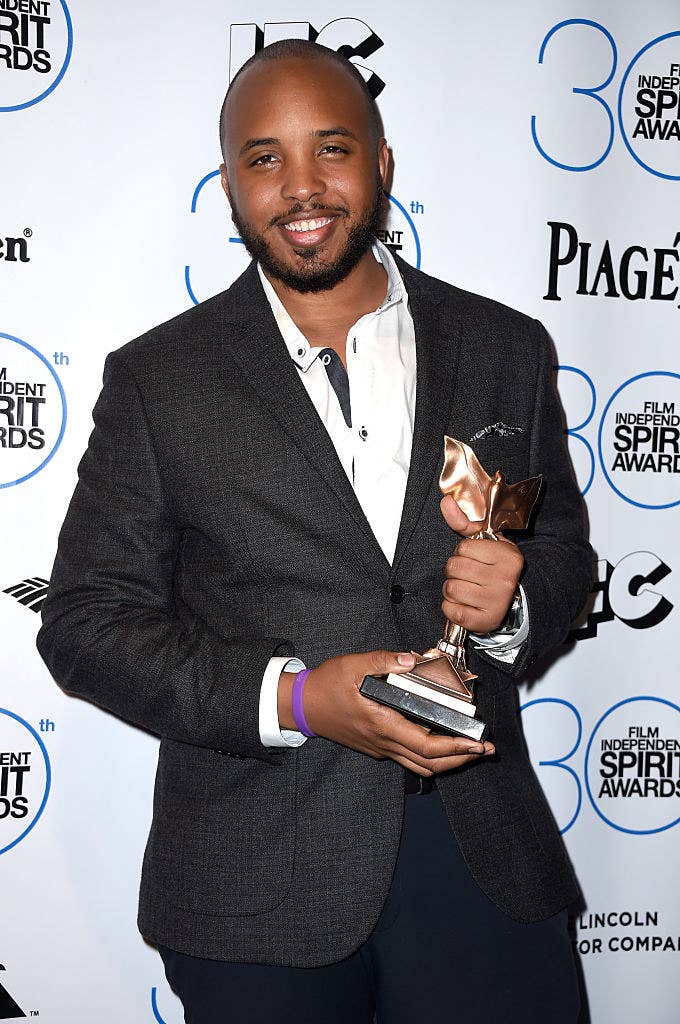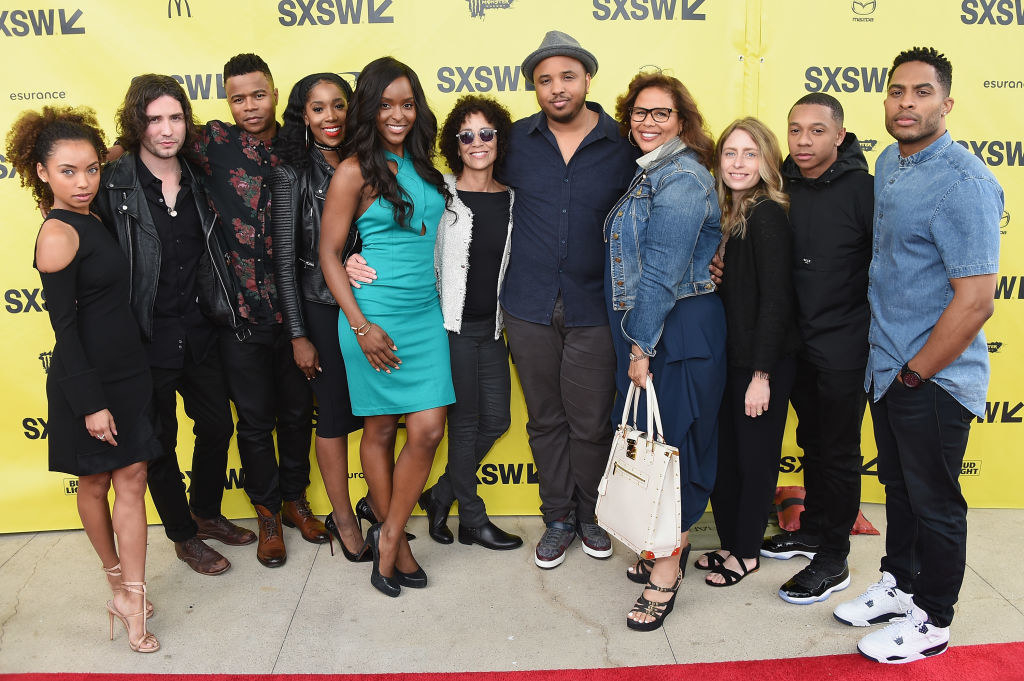From afar, Dear White People creator Justin Simien might seem like an overnight success.

But the inspirational filmmaker has been creating his own opportunities long before Hollywood crowned him an indie darling.
BuzzFeed caught up with Justin to learn more about his creative process, his encounters with self-doubt, his approach to self-care, and his search for a college filmmaker to spotlight at the upcoming DWP Season 3 premiere.
What are three key steps you took that helped to bring Dear White People from a script to a successful Kickstarter campaign to an award-winning film to an acclaimed Netflix series?
JS: First, I decided that this would be my first film, no matter what, and, secondly, that I would try any and everything to get it made. Step three was protecting what was special about the film, shielding it from all of the chaos and anxiety that comes with making a movie in 19 days in a new city with less than two weeks of preparation. And step four was forcing myself to be proud at it all. (Yes, I added a step because as creatives we should also celebrate our accomplishments, especially when we've pushed ourselves so hard to achieve them.)

Your show explores race, gender, sexuality, and a lot of sociopolitical issues that are particularly volatile these days. In what ways does this affect your creative process as a black filmmaker? And what are some ways that you practice self-care in this regard?
JS: These issues are already on our minds because of Dear White People and its storylines, so we'd be thinking of them regardless. It’s actually nice to use the show as a cathartic outlet. In many ways, it's my way of documenting and processing events and traumas and observations and it provides us with ways to laugh at the absurdity. That’s the self care part.
In what moments do you typically experience the most self-doubt and insecurity and how do you climb out of that?
JS: I experience self-doubt and insecurity right when I’m finishing something and getting ready to reveal it. It’s like that daydream Lisa Simpson has while contemplating life as a rockstar. I just imagine a whole bunch of people showing up to the screening to boo me in person. As creatives, we usually get into this business because we don’t feel seen. That motivation seems to drive the work, but it can actually cripple too. Knowing when to listen to fear and when to move through it is an ongoing life lesson. You got some tips?
What's the best industry advice you've received and from whom? Why do you consider it to be the best?
JS: Hmm, I don't think I've ever been given advice that’s that good. We all hope a grown-up will tell us what to do, but from what I can tell most people are totally making up this whole film and TV business thing as they go along. Like, for real! Let that sink in. A scant few actually know what they are doing, and even fewer have been willing to talk to my black ass, which is terrifying and liberating all at once. Just pick good partners and learn to trust yourself.
What are some ways that you give back to young aspiring filmmakers who are working on their own Dear White People ?
JS: I created Culture Machine, an online community where filmmakers can share their experiences and knowledge on Facebook and Instagram. I also host talk sessions to help equip folks with the tools they need to give themselves a break. And right now, we're giving college filmmakers the opportunity to submit their own short films to the Dear White People Film Festival for a chance to screen it at the Netflix Season 3 premiere!
But overall, I try to remind every aspiring creative that, at the end of the day, they're the engine that powers their own goals. Nobody is going to save you, or put you on, or make your movie better than you can. This industry will have people thinking they aren’t good enough, when in reality, they're probably much greater and stronger than the fragile, fickle framework that is Hollywood. So, bust that thing down!
